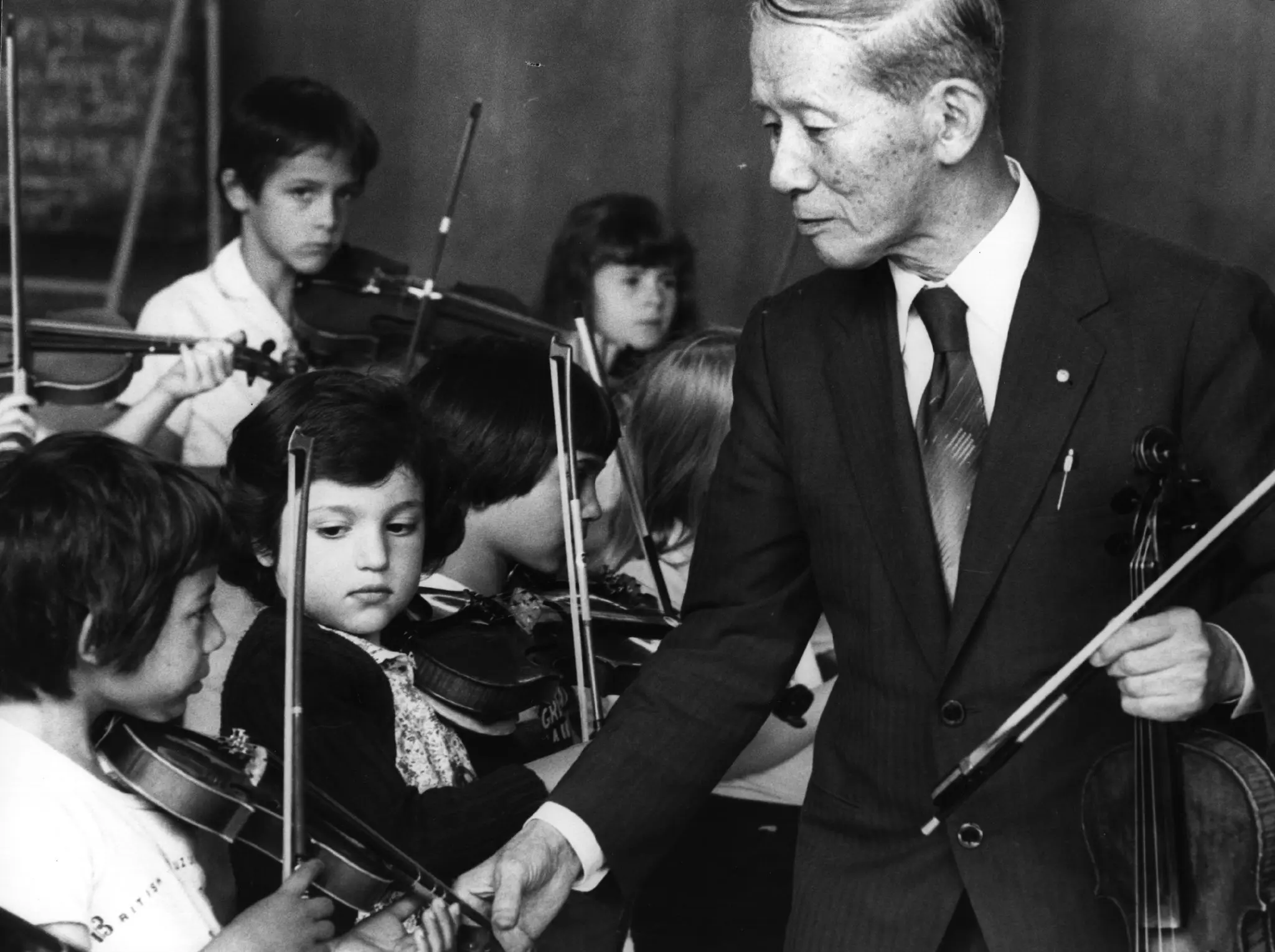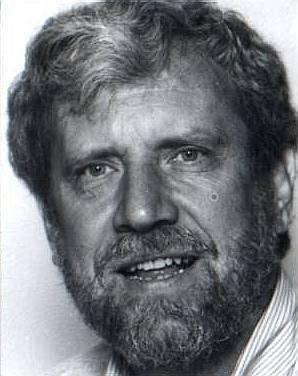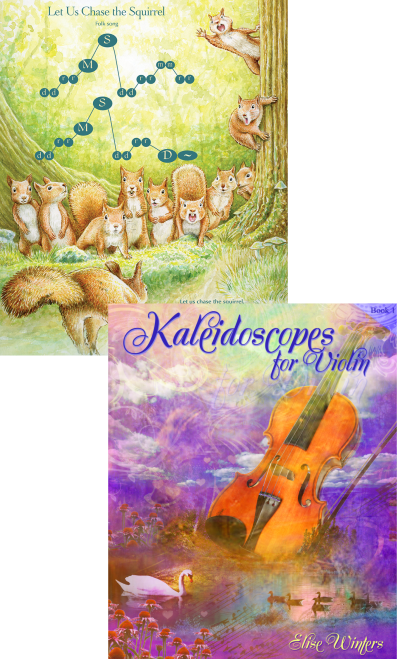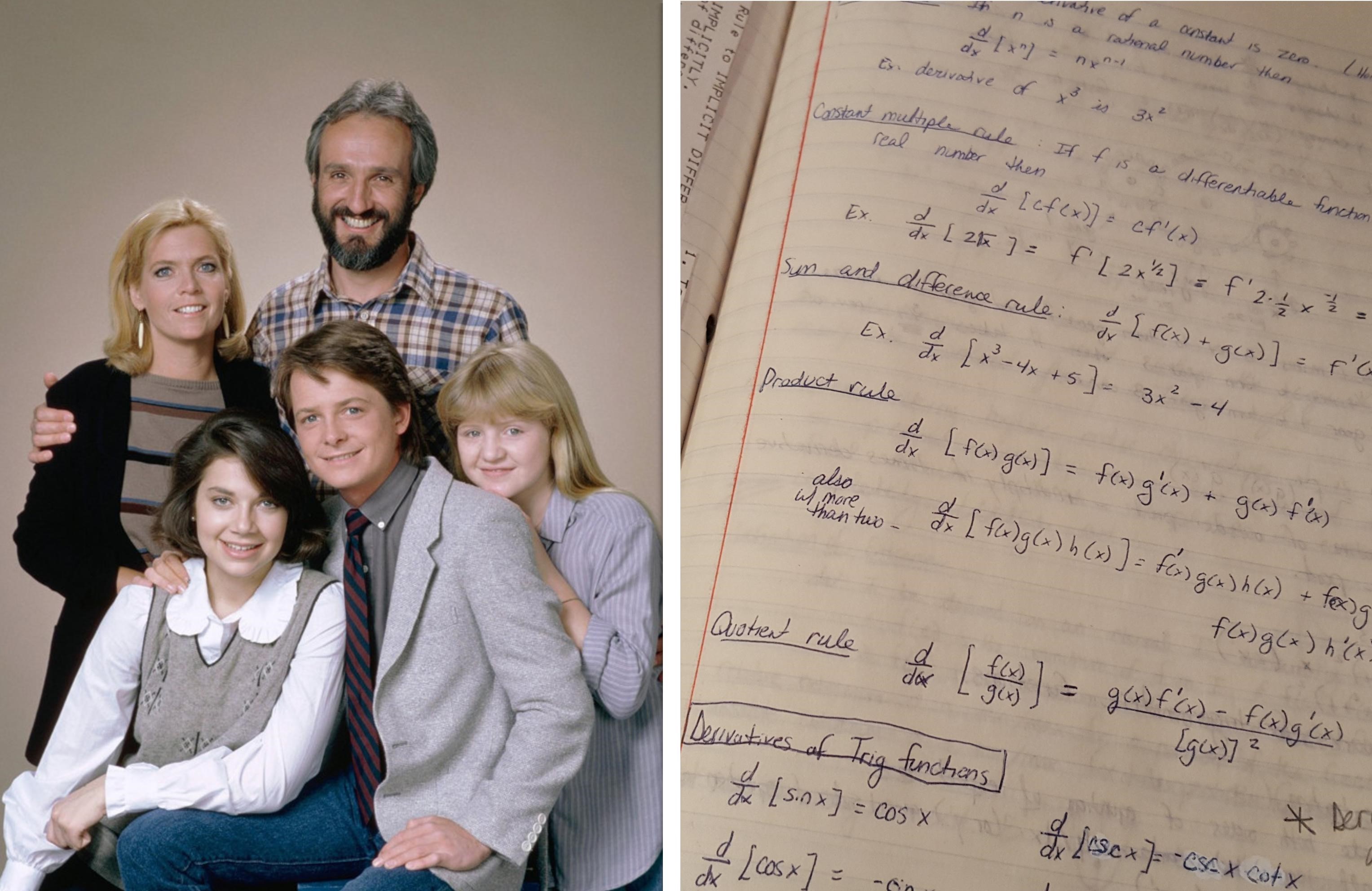While for years I’ve stood by the Suzuki philosophy that “every child has talent,” this past week a conversation with a friend, a well-known practice coach from Los Angeles, showed me a gap in my thinking.
The gap is tiny, but through it you can see the sky.
My parents were Suzuki parents. Now, when I say this, I don’t just mean that I practiced violin every day. They also made sure my room was organized, my folders neat, homeworks completed on time, and incorrect answers corrected and analyzed before I turned in the homework. A- on a test? They looked over my mistakes and made sure I understand them.

Of course, I assumed that my friends’ afternoons and evenings looked more or less the same. After all, our houses looked the same. We all had moms, kitchens, playtime, and bedtime. Clearly our parents were studying from the same rule book.
Which means that if I was able to quickly grasp a new math concept and my friends couldn’t, presumably I was better at math. If I wrote longer and more interesting stories, presumably I was also good at writing.
My friends all thought that I was very smart. It seemed true. It didn’t occur to any of us that perhaps we were each investing our evenings and weekends doing different things. It simply looked like some of us were “better” at this or that.
What our eyes and ears tell us
Suzuki teachers believe in developing every child to their greatest ability.
Deep in our hearts, though, we may still believe (at least a little) in that special something called “talent.”
Or “being smart.”
The reason is that talent occurs as an autobiographical experience. At 8 years old my friends and I noticed that Rebecca is good at math, Amy is good at soccer, and Kevin is funny. At that young age, it didn’t occur to us that these abilities had been fostered. Being smart, athletic, or creative became part of our identity even before we are aware of having an identity.
As we become teenagers we begin to observe that our friends’ families, while seemingly similar to ours, are different in striking ways. Yet we still may not put two and two together.
It did not cross my mind that Robin’s storytelling abilities had something to do with encouragement from her parents (a ceramic artist and musician). Naturally, I assumed she was creative… just as my friends assumed I was smart.
Small Differences Over Time
Small differences in experience can lead to big differences in apparent ability.
Even our very youngest students enter our studio with several years of life experiences. While Sofia’s parents spend evenings teaching her to tie her shoes, Sarah’s parents may have chosen shoes with velcro straps because they’re easier. Yet when Sofia learns the bowhold in one lesson we may assume she is somehow “quicker” or learns more easily.

Complex dynamic systems theory teaches us that small differences in initial conditions yield widely diverging outcomes.
When my own mother corrected tiny mistakes, I learned that small details matter … so I paid more attention to tiny details everywhere.
When my mom asked me to explain my answers, I integrated the knowledge more deeply than my friends whose mothers simply made sure they got the right answers. I also learned that understanding is as important as getting the answer. Ten years later in calculus class, I pored over the explanations while my friends memorized formulas.
A single stone can change the course of a river.

Psychologist Anders Ericsson
The science behind talent
When Anders Ericsson published his ground-breaking study debunking the talent myth in 1993, Suzuki’s Talent Education was already past its 50th birthday. The Ericsson study showed that experts in every field, from chess to violin to tennis, put in an average of 10,000 hours to attain mastery.
Furthermore, Ericsson observes, “The search for stable heritable characteristics that could predict or at least account for the superior performance of eminent individuals has been surprisingly unsuccessful.”
In other words, some very dedicated scientists have not been able to find any evidence for the thing we call “talent.”
Mental abilities seem to be overwhelmingly determined by experience rather than genes.
If Suzuki ever read this study, perhaps the thought which went through his 95-year old mind was a thoughtful, humble, politely Japanese version of, “I told you so.”
Suzuki had been asserting since the 1930s that “talent,” at least in the way that most people think of it, is largely a myth. Rather, all children are born with great ability. What allows certain children to excel (often in a way that appears “amazing” to outsiders) is parents’ ability to foster their learning.
Does this mean that any child can become a virtuoso, chess master, or astrophysicist?
Well, Suzuki observed, what skill is more virtuosic than the ability to fluently speak one’s native language? Language learning seems commonplace because it is gradual and every child achieves it. Yet it requires the most extraordinary control of the tongue, voice, ear and mind.
What does 10,000 hours look like?
Many people still look at a great athlete or musician and swear that their mastery must have something to do with innate ability.
Why do we think that? Because not everyone attains mastery in that skill. And because we weren’t there while they trained. We didn’t see how their parents nurtured the seeds of their ability when they were two. We forget those rough, crude beginnings because… well, we didn’t see them. Their parents did.
As Suzuki parents and teachers we know that musical accomplishment takes work. But many of us, in the privacy of our own thoughts, may think, “Surely there is still such a thing as being gifted.”

This woodcarving by Josh Carte is inspiring… and is the product of hundreds of hours of deliberate practice.
Well, consider for a moment. Ten thousand hours is hard to imagine, even if you’ve you’ve done it yourself (because you were probably quite young for many of them). So let’s put it in perspective. Imagine you are starting a new skill, something you’ve never done before. Say, whittling small figurines.
Now imagine spending 3 hours a day for 10 years, working under the direction of a master carver.
How will the figurines from your first year compare with those after 3,285 hours (3 years) of careful carving? After 6,570 hours (6 years) with knife and wood? After 9,855 hours (9 years) of crafting?
Now, what happens if you have begun to be recognized as an accomplished artist? You begin to receive requests for unique pieces as a gift or a gallery piece. Now you are spending 5+ hours a day carving, rather than just 3. How good will you be after another ten years?

Step-by-Step Posture Development
Engaging Repertoire
♦ Singable songs with lyrics ♦ Movable DO solfège ♦
♦ Culturally diverse ♦ Encourages independent learning ♦
Kaleidoscopes Book 1 opens a magical world for the beginning violinist. Detailed instructions assist the parent in working at home with their child, and a variety of games and learning activities make sure practicing is enjoyable.
"Many students are able to play a new piece almost every week right from the beginning. This gives the students, parents, and teachers a feeling of progress which is self-motivating and helps to make lessons and practicing a joyful experience."
Why starting young matters
Limited by the need to earn a living and care for a family, most adults would struggle to maintain such an intensive training regimen for even a few months. A young child, on the other hand, has blithe self-confidence and ample time.
The age at which someone reaches an elite level depends primarily on (1) when they started training, and (2) the quality of that training. Starting young matters not because of any “critical period” for learning (see Ericsson’s discussion here). It is simply more difficult, in practical terms, for latecomers to catch up.
First, the “prodigy” — who has already accumulated more hours — is still practicing. Second, focused work from a young age means that discipline and mental focus become part of who they are, giving them the emotional and mental tools to learn more efficiently. Third, this young person is granted access to the best training, the most encouragement, and unique opportunities. The more that parents believe their child is “gifted,” the more they (and their child’s teachers) are willing to sacrifice to help them succeed.
Last and perhaps most significantly, so-called “ordinary” students may not put in the extraordinary effort it takes to attain high levels of mastery. Instead, they train more modestly (since they believe their talents are more modest), or even wander from interest to interest, wishing they could find an area where they, too, are “gifted.”
So what if we knew that each child was “gifted”?
What might be possible after each 10,000 hours? On violin, piano, chess, astrophysics … whatever?
This was what Suzuki saw. “Bend the twig the way you want the tree to grow.” Small steps, added up over years and hours, grow into something that may seem from the outside seems like talent … even to Suzuki teachers who believe in ability development.
(I’m confessing here.)
The evidence from our eyes and ears
There is something strangely compelling about the notion of talent. Even those of us who know that playing in instrument simply takes the right kind of work for long enough, still find ourselves thinking or thoughts like, “That guy is a math genius,” or “That cellist has something special.”

It may seem that someone is smarter... or did they just put in more hours, or approach their work differently?
In college I was fascinated by complex dynamic systems theory and considering a career in science. In my freshman class, one of my classmates seemed to have an extraordinary mathematical understanding … so much so that I doubted my own ability. Did he have “a gift” for math? It seemed that way.
Or, in hindsight, did it seem that way because he and his dad had fun with geometry proofs when he was ten and were doodling multivariate equations at the same time my brothers and I were watching “Family Ties”? I’ll never know.
I reached the reluctant conclusion that I didn’t have “the right kind of mind,” and switched majors.
How many of us live our life inside the philosophy that every child has potential, but deep down we still believe in some inborn quality we call “talent” or “being smart”?
The myth of talent is a double-edged sword. It seems innocuous, a nice compliment. But it has a nasty underbelly.
It has teachers underestimate what’s possible for many of our students. It has parents give less than 110% in their parenting, as they assess “how special” their child is and invest accordingly. It has teachers settle for “good” when we owe our students so much more than that.
In our personal lives, it may induce us to turn back at the first sign that perhaps we don’t have what it takes.
Having ourselves settled, we become complacent when young people settle for more modest goals because their real dream looks “too” difficult to achieve. We may even encourage them to take a lesser road because we hope to save them the pain of failure.
Beyond “talent” lies infinite possibility
Suzuki wasted no words when talking about parenting. Among his pithy quotes are the observation, “’My child is no good,’ says the parent who is no good,” or “Fail to foster and say your child is born this way?”
I now understand the passion and the commitment that motivated his words. Would that we all had the clarity and wisdom to stand for children this passionately.
As parents and teachers, our mission is for each child to discover the “extraordinary” that is inside them.
We must let them know that the amount of work to truly master something is prodigious; 10,000 hours takes more space in real life than it does on paper.
We must let them know that hours, not ability, is the difference between them and their friend or classmate who seems more accomplished.

When we assume they have something we don't, we leave the journey incomplete... and never realize our own possibility.
We must encourage them to put themselves on that journey in a field of their choosing, and nurture the discipline, passion, and stamina that will help them ascend that mountain.
As mentors for the young people in our lives, our sacred duty is to nurture their dreams and ensure that they will pursue them with everything they have. They must be willing to be unreasonable because 10,000 hours is a lot of work.
But any worthy goal is well worth the effort.

Such a SUPERB commentary! Excellent article so artfully expressed. I am a Child/Family therapist and express very similar views to all of my families. I will, with your permission, use this article as a hand out for my adolescents and families
Andrea, thank you so much for your comment! I would be honored for you to use the article. By the way, my masters’ is in social work … turned out my passion for working with young children found a home in teaching. :)
Best of wishes in your work!!
Absolutely inspiring article and stimulates much deep thinking. However, I do believe setting a model of behavior as a parent for your child/children also conditions your child to follow certain pathways. I played the piano every day for my son from the time he was in his playpen & I feel it did influence his interest in music, & now as an adult, he has been a musician for many, many years & has honed his skills well.
I see how hours of attending to his music has developed his talent. So Suzuki may have had some merit in his philosophy.
I discovered the Suzuki philosophy/teacher training while (finally) finishing a degree program as a single mom musician. And to find that it lines up with Ericson’s ‘deliberate practice’ gives it even more ‘legs’. Suzuki knew that most children are capable of learning, and emphasized the role of the parent.
The Harry Potter books have reinforced the idea that talent is innate. There is no way a muggle child can become a magician.
That is a fascinating connection.
I think every generation has its own story following this archetype. We are so drawn to the idea of having of having a special gift (or being “chosen”).
In my generation it was Wrinkle in Time, The Book of Three, the Dark is Rising, and The Giver. The generation before brought The Once and Future King, Narnia Chronicles, and The Hobbit. Most Disney movies emphasize these elements, and they can be found throughout religion and myth.
Perhaps this idea appeals to our intuitive sense (or wish) that there is something special about us and that are our own life is uniquely meaningful. It can perhaps be seen as a metaphor for the untapped potential inside each of us.
So these stories can serve as inspiration or wishful escapism, depending on one’s relationship to them.